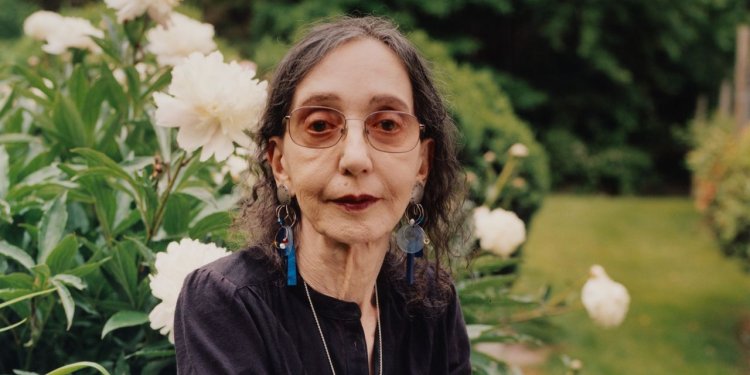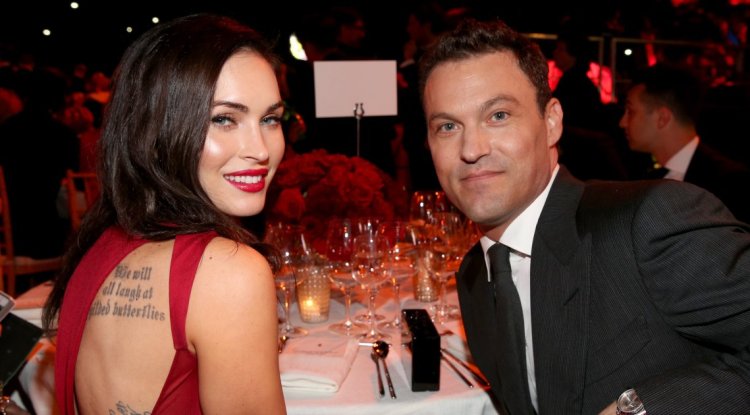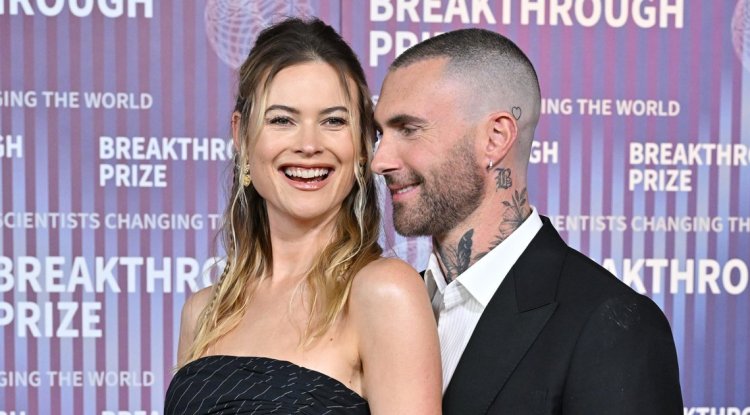Joyce Carol Oates Examines a Dystopian Future
The author, whose latest book, ‘Zero-Sum,’ is out in July, surveys fresh, often dark ideas about artificial intelligence and extinction. “Whenever you are writing, it seems like it’s the first time,” says Oates, whose forthcoming book ‘Zero-Sum’ attends to the sinister undercurrents of home life. By Antonia Hitchens | Photography by Miranda Barnes for WSJ. Magazine June 23, 2023 8:30 am ET “I have so many ideas, and I have so many notes here at my study. I just won’t live to write them all,” Joyce Carol Oates said recently. Her oeuvre spans novels, novellas, short stories, plays, poetry, nonfiction and, occasionally, viral tweets, not to mention a Substack. When it comes to her books, the 85-year-old author has often taken on the sinister and the tragic, as with 2022’s Babysitter, a novel about a serial killer in Detroit who chase


“Whenever you are writing, it seems like it’s the first time,” says Oates, whose forthcoming book ‘Zero-Sum’ attends to the sinister undercurrents of home life.
“I have so many ideas, and I have so many notes here at my study. I just won’t live to write them all,” Joyce Carol Oates said recently. Her oeuvre spans novels, novellas, short stories, plays, poetry, nonfiction and, occasionally, viral tweets, not to mention a Substack. When it comes to her books, the 85-year-old author has often taken on the sinister and the tragic, as with 2022’s Babysitter, a novel about a serial killer in Detroit who chases children, and Blonde (2000), a fictionalized memoir of Marilyn Monroe, which last year was adapted into a film of the same name.
In Zero-Sum, out from Knopf in July, Oates attends again to the ominous, this time to the menacing undercurrents of home life while also considering the latent fear of future technologies. The collection includes stories on the coronavirus pandemic, artificial intelligence, ravaged female bodies and the possible extinction of language and humanity. Characters—women especially—wonder whether they’re being experimented on, whether their brains and bodies are infected. “It is kind of scary to read Nineteen Eighty-Four,” one character says. “You can see how our world could turn into that world.”
Reached by phone in Princeton, New Jersey, where she lives with her two cats, Zanche and Lilith, and spends time outdoors and gardening, Oates says the blank page retains its sense of mystery. “Whenever you are writing, it seems like it’s the first time,” she says.
In the collection, the concept of the zero-sum game comes up repeatedly, with a character at one point relating it to the “vulgar American soul.” What interested you about it?
Some people think that everything that you do in life is a game, and you’re in competition with other people, and, if you don’t win, then they take everything. I guess our politics is like that. So there’s really not enough impetus toward a kind of coalition or a compromise. [T]here are some people—I don’t think I’ve actually had a relationship with anyone like this—where falling in love or having a relationship becomes a game, and one person will be dominant and really ultimately just exert power over the other, manipulate the other, and the other is kind of trapped in this relationship. I don’t think of love or friendship as a zero-sum game, but I guess some people do.
In Zero-Sum, a character’s connection to the external world becomes almost exclusively virtual. You tweet frequently. Do you draw inspiration from your virtual experience—what you see while scrolling and engaging with people online?
I think that [Twitter] replaces in my life—and in the lives of others who are more my age—a kind of world where we would spend more time on the telephone. I used to talk to friends two or three or four times a day. I had a woman friend, we talked every day. Now I have one person, just one person, who calls me. I never call him, but he calls me. I somehow just don’t talk on the phone, though I’m talking to you. I talk for business or practical [purposes]. So the Twitter time, which is sort of frivolous and kind of wasted time, it’s kind of just playful.
What was it like for you to see the recent film adaptation of your novel, Blonde?
A number of movies have been made of novels of mine and several short stories. So they’re all different; they’re all interesting, and I tend to respect people’s creativity. So I don’t measure the film against the text. They’re completely different. The connection between them could be some dialogue. [Director] Andrew Dominik used [a lot of material] from my novel Blonde, but the novel was almost 1,000 pages long and the movie’s not that long [166 minutes]. I sort of see what somebody else has done and am kind of interested in it, but I tend not to be critical.
You’ve said that the subject of your writing is “life in America,” and that you’ve written so many books you’ve exhausted your own life as a subject. Where do you find material now?
Some of it is based on my own experience, not so much on my own life. I meant by that, young writers start to write about their childhood and their coming of age and so forth, and then after a while they obviously can’t keep writing about that. So they sort of branch off. The prevailing thing today for young writers is their identity. That’s not so much a concern for older writers. Many of [the young writers] are first generational. They’re transitional people. They’re writing about that shift to being Americans, how to revere and respect their ethnic ancestry while also being Americans. There’s an identity crisis of gender. When I was a young writer almost nobody wrote about that. I don’t remember what we were writing about.

And here, in her own words, a few of Oates’s favorite things:
“The photo on the wall is of Marrakesh, by my late second husband, Charles Gross. He was a photographer who traveled all around the world, and I have his work up on the walls of the house. Below is an antique clock. My late first husband, Ray Smith, and I bought a number of antique clocks in the Delaware Valley in the early 1980s. The clock doesn’t probably keep an accurate time, but it works. Next to it, a portrait of me, painted by Gloria Vanderbilt. I have four or five of them. The photograph at center is of my grandmother, taken around 1917. After she passed away, it was discovered that she had been Jewish, but she never acknowledged or identified herself as being Jewish. It was kind of interesting, because she behaved, in many ways, like the stereotypical Jewish person who is very bookish, revered books. She always gave me books for a birthday or for Christmas, and nobody else did. Front left, my first book [By the North Gate]. I was in my early 20s. There’s nothing for a writer quite like the first book. When you’re a young, new writer, everything seems so precarious and chancy. Front right, a first edition of Ernest Hemingway’s first book released in the U.S., In Our Time. A biographer of mine gave me this. I still teach one or two stories from that collection to my students. It’s kind of interesting for students to see the work of another young writer of more or less their age. In the middle is a talisman against the evil eye. My [second] husband brought that back from some Middle Eastern country where he had traveled. People can look at you in an evil way or put a curse on you, and this helps to protect you. These two necklaces in front of it are Venetian glass. One of them was a gift from my first husband, and the second was a gift from my second husband. It’s just an accident that my husbands both gave me these beautiful necklaces. They even look a bit alike. I wear them both at different times. Life is so strange. If you just live long enough, a lot of odd, ironic, coincidental things start to happen to you.”
These interviews have been edited for clarity and length.
What's Your Reaction?






















